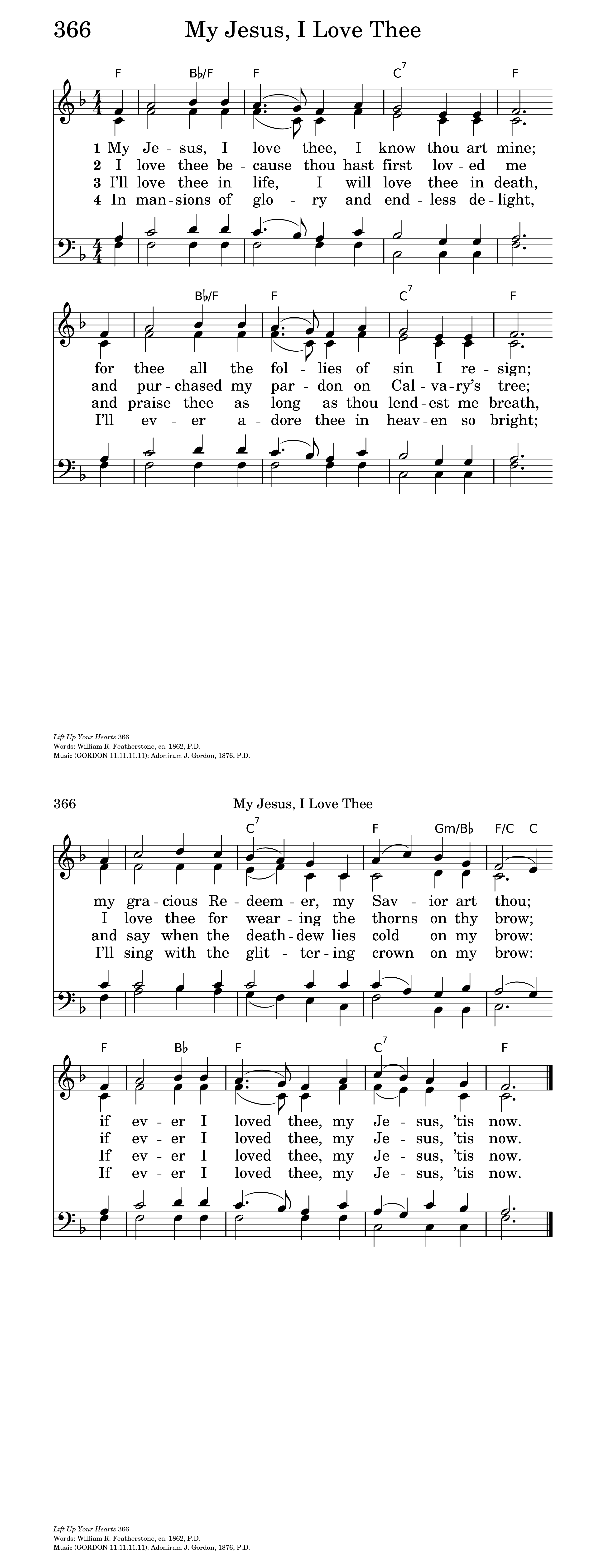1. I could not do without thee,
O Saviour of the lost,
whose precious blood redeemed me
at such tremendous cost;
thy righteousness, thy pardon,
thy precious blood, must be
my only hope and comfort,
my glory and my plea.
2. I could not do without thee,
I cannot stand alone,
I have no strength or goodness,
no wisdom of my own;
but thou, belovèd Saviour,
art all in all to me,
and weakness will be power
if leaning hard on thee.
3. I could not do without thee,
for, oh, the way is long,
and I am often weary,
and sigh replaces song:
how could I do without thee?
I do not know the way;
thou knowest, and thou leadest,
and wilt not let me stray.
4. I could not do without thee,
O Jesus, Saviour dear;
e’en when my eyes are holden,
I know that thou art near;
how dreary and how lonely
this changeful life would be
without the sweet communion,
the secret rest with thee.
5. I could not do without thee;
no other friend can read
the spirit’s strange deep longings,
interpreting its need;
no human heart could enter
each dim recess of mine,
and soothe, and hush, and calm it,
O Blessèd Lord, but thine.
6. I could not do without thee,
for years are fleeting fast,
and soon in solemn loneness
the river must be passed;
but thou wilt never leave me,
and though the waves roll high,
I know thou wilt be near me,
and whisper, 'It is I.'
Scripture; Matthew 14:27
; John 6:20; John 6:20; Hebrews 13:5-6
The hymn "I Could Not Do Without Thee" was written by Frances Ridley Havergal, a 19th-century English poet and hymn writer known for her deep personal faith and devotion to Christ. Composed during a time of physical weakness and spiritual reflection, the hymn expresses her utter dependence on Jesus in every area of life. Havergal, who struggled with frail health throughout her short life, often used her suffering as a means to draw closer to God. This hymn reflects that intimacy, portraying Christ not only as a Savior but also as a constant companion, source of strength, and hope in both life and death. The repeated line “I could not do without Thee” emphasizes the believer’s recognition that without Christ, life’s burdens, temptations, and even joys would be unbearable. Havergal's writings often focused on complete surrender and trust in Jesus, and this hymn is a quiet yet powerful testimony to that truth. Though not as widely sung as some of her other works, it remains a deeply cherished piece for those who value hymns of deep spiritual reflection and reliance on God's sustaining presence.







